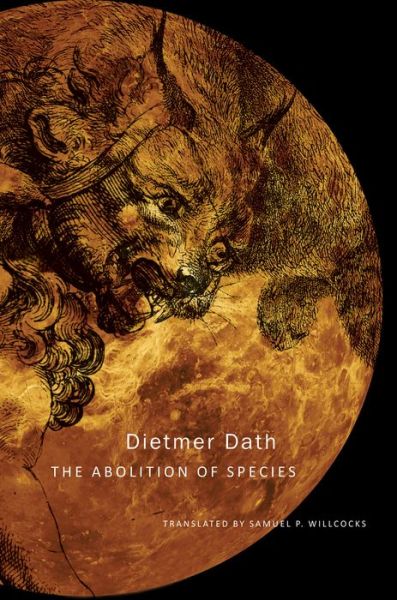
Dietmar Dath, The Abolition of Species, Trans. by Samuel P. Willcocks, Seagull Books, 2013.
The world as we know it is over. Man’s reign on earth
has come to an end, and the reign of the animals has begun. The
indifferently wise Cyrus Golden the Lion rules the three-city state
that is now what remains of Europe. Yet, other forces stir while the
king of beasts sleeps—the last struggling human resistance, the
Atlanteans with their mysterious undersea plans; the factions of
Badger, Fox and Lynx within the empire itself; and, in the jungles
across the ocean, a ceramic form of postbiological life. Welcome to the
setting of Dietmar Dath’s futuristic novel, The Abolition of Species, presenting an imaginative and highly original take on the decline and rebirth of civilization.
Cyrus
the Lion sends the wolf Dmitri Stepanovich on a diplomatic mission,
and in the course of his journey he discovers truths about natural
history, war, and politics for which he was unprepared. The subsequent
war that breaks out in The Abolition of Species will come to
span three planets and thousands of years—encompassing treachery and
massacres, music and mathematics, savagery and decadence, as well as
the terraformation of Mars and Venus and the manipulation of time
itself. By turns grandiose, horrific, erotic, scathing, and visionary, The Abolition of Species is a tale of love and war after the fall of man and an epic meditation on the theory of evolution unlike any other.
One
of Germany’s most celebrated contemporary writers, Dath has
distinguished himself through works that deftly combine popular
culture—particularly music—with left-wing politics and the fantastic. The Abolition of Species embodies
the best of what Dath is known for and will cement his reputation
among English readers excited to discover one of the freshest voices in
contemporary literature.
The age we know is long past. Where Europe once was, there are now only
three labyrinthine cities that have grown up, rather than been built.
The world belongs to the animals. Fishes argue about sodomy, hawk-headed
female theologians search in archives for evidence of mankind and Cyrus
Golden, the lion, runs the three-city state. When a powerful enemy
threatens the new society, he sends out the wolf Dmitri as a diplomat to
search for an ally in the former North America. The journey by night
across the ocean and into the deep tunnels of natural history teaches
the wolf dangerous things about war, art and politics and takes him to
the edge of his world where he realises "why what happened to humans
happened to them".

No comments:
Post a Comment
Note: Only a member of this blog may post a comment.